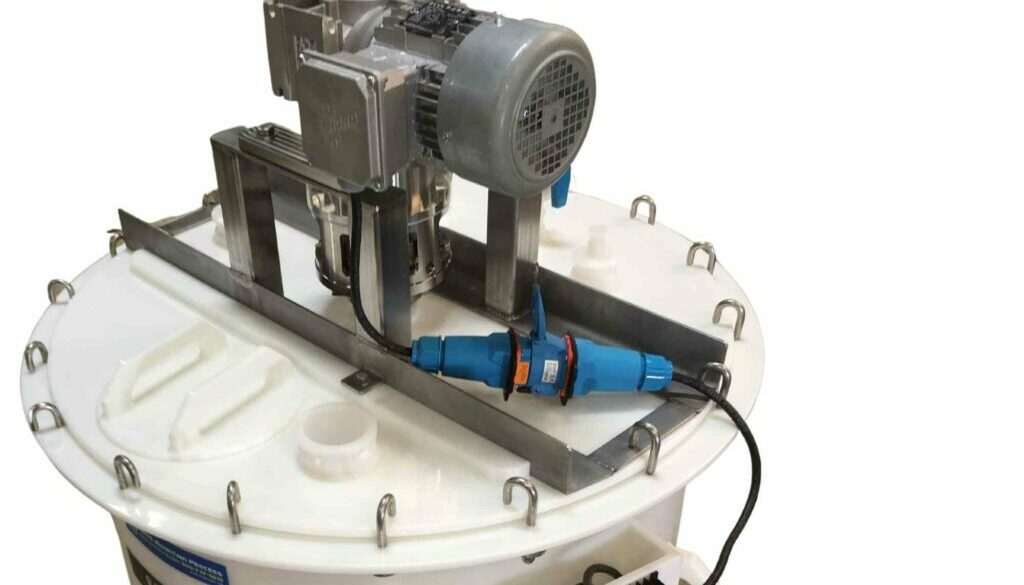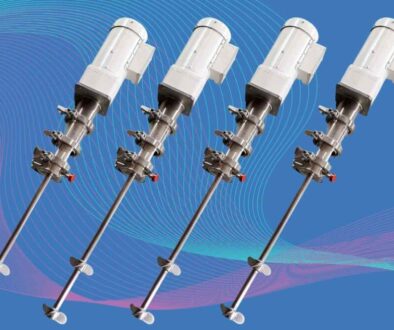In the world of biotech manufacturing, the choice of equipment plays a crucial role in ensuring optimal production processes and product quality.
One such essential piece of equipment is the sanitary plastic mixing tank. These tanks offer numerous advantages over traditional alternatives, making them a preferred choice for biotech manufacturing facilities. In this blog, we will explore the top five benefits of using sanitary plastic mixing tanks in biotech manufacturing.
1. Superior Sanitary Standards:
Maintaining high sanitary standards is paramount in biotech manufacturing. Sanitary plastic mixing tanks are designed with this requirement in mind. Made from FDA-approved materials such as high-density polyethylene (HDPE) or polypropylene (PP), these tanks are inherently resistant to corrosion and microbial growth. Unlike metal tanks, plastic tanks do not rust or corrode, ensuring that no contaminants are introduced into the manufacturing process. Moreover, the smooth surface of sanitary plastic tanks prevents the accumulation of residue and facilitates easy cleaning, further reducing the risk of contamination.
2. Chemical Compatibility and Versatility:
Biotech manufacturing often involves working with a wide range of chemicals and compounds. Sanitary plastic mixing tanks offer excellent chemical compatibility, making them suitable for handling various substances without the risk of chemical reactions or degradation. Plastic tanks can be customized to meet specific requirements, including temperature resistance, UV protection, and resistance to specific chemicals. This versatility allows biotech manufacturers to choose the ideal tank material and design that best suits their unique needs.
3. Cost-Effective Solution:
Investing in sanitary plastic mixing tanks can provide significant cost savings for biotech manufacturing facilities. Plastic tanks are generally more affordable than their stainless steel counterparts, making them a cost-effective option for both startups and established biotech companies. Additionally, plastic tanks are lightweight and easier to install, reducing labor and transportation costs. Their durability and low maintenance requirements further contribute to long-term cost savings.
4. Excellent Thermal Insulation:
Temperature control is critical in biotech manufacturing processes. Sanitary plastic mixing tanks excel in this aspect by offering excellent thermal insulation. Compared to metal tanks, plastic tanks have lower thermal conductivity, which helps maintain consistent temperatures inside the tank. This feature is especially crucial when handling heat-sensitive biotech materials or conducting temperature-sensitive reactions. The superior insulation properties of plastic tanks reduce energy consumption and ensure precise temperature control, resulting in improved process efficiency.
5. Scalability and Flexibility:
Biotech manufacturing is often subject to changes in production volume and process requirements. Sanitary plastic mixing tanks offer excellent scalability and flexibility to accommodate such fluctuations. Plastic tanks can be easily resized or added to existing setups without the need for extensive modifications. Moreover, plastic tanks are lighter and easier to maneuver, allowing for seamless reconfiguration of the production floor layout as needed. This adaptability enables biotech manufacturers to scale their operations efficiently and respond to market demands with ease.
Conclusion:
Sanitary plastic mixing tanks provide a wide range of benefits for biotech manufacturing facilities. From ensuring superior sanitary standards to offering chemical compatibility, cost-effectiveness, thermal insulation, and scalability, these tanks are a reliable and versatile choice. Biotech companies can enhance their manufacturing processes, improve product quality, and optimize their operations by embracing the advantages of sanitary plastic mixing tanks. With their proven track record and numerous benefits, it’s no wonder that these tanks have become an indispensable tool in the biotech industry.




